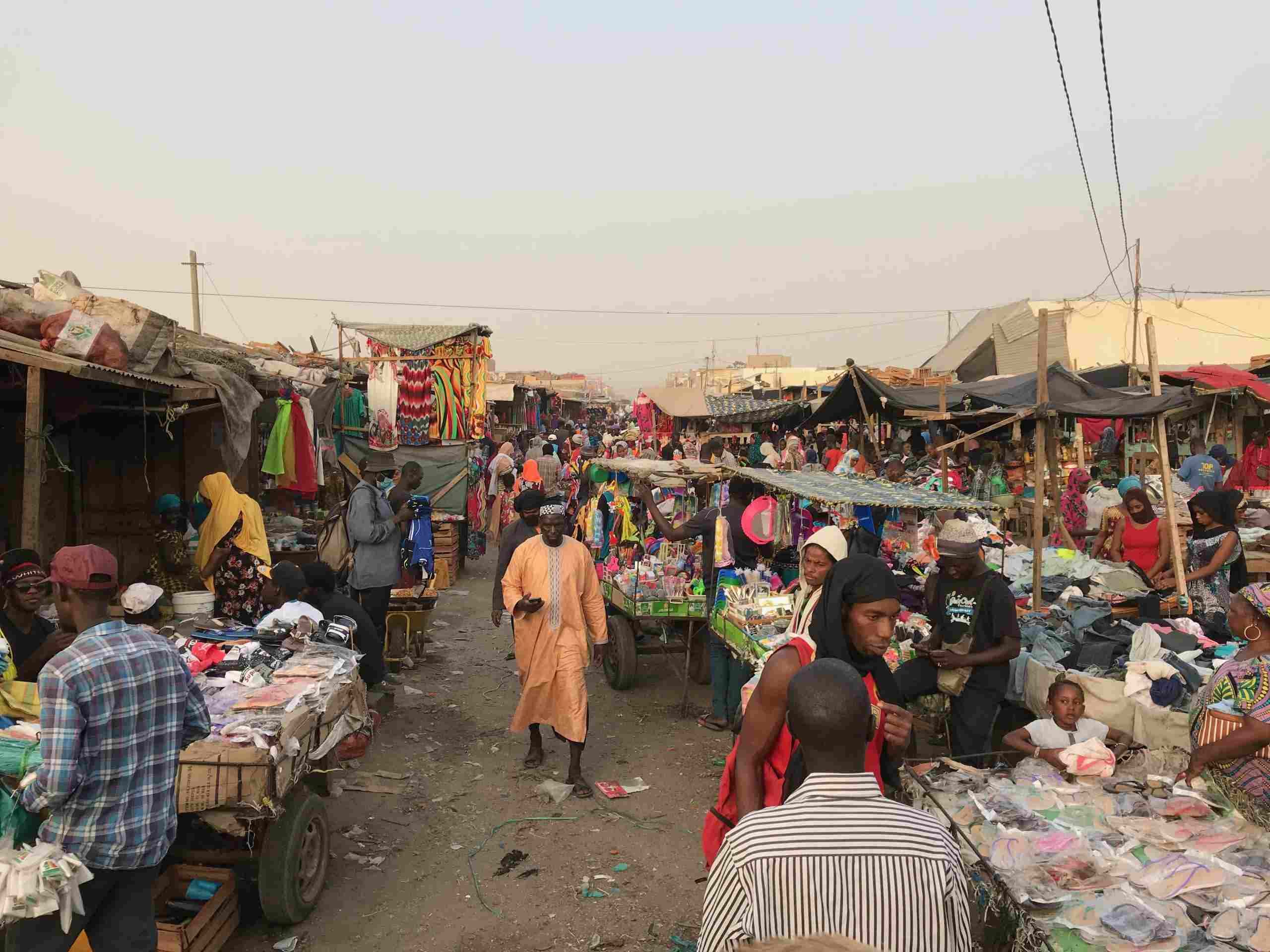Shaping a sustainable vision for Sebkha

© GIZ/Felix Döhler
The mayor of Sebkha, a sub-community of Nouakchott, is striving for projects that benefit his citizens and simultaneously contribute to the Sustainable Development Goals. Have a look at how City WORKS tools helped him in this regard.
Context
Sebkha is a municipality in the Nouakchott Capital Region, with a population of more than 100,000 inhabitants. This “melting pot” district with a high number of migrants from neighbouring countries and rural Mauritania is characterised by low incomes and a lack of basic services in areas such as sanitation, health and education. Parts of Sebkha are situated below sea level, making the area particularly vulnerable to flooding from a rise in sea level rise and increasingly heavy seasonal rainfalls.
Since taking office in autumn 2018, mayor Mr. Aboubacar Soumaré has been working to improve public service delivery, including municipal finance. With support from the Mauritanian-German Programme to strengthen Decentralisation and Public Finance (ProDeF), his administration was able to raise municipal revenues by 114 percent in 2019 compared to the previous year, and another increase of more than 800 percent is projected for the current year. Increased municipal revenues shall now be re-invested into municipal services and, ultimately, in the quality of life of Sebkha’s population.
The 2030 Agenda was considered an ideal lens through which to observe and decide what Sebkha’s most urgent development needs are, and which municipal actions can contribute towards fulfilling them in the time frame of 2020 to 2023 (mandate of Mr. Soumaré).
Approach
From 11-18 March 2020, a workshop was carried out to develop a municipal action plan for enhancing Sebkha’s development in accordance with the SDGs. The moderators, a development advisor seconded to Sebkha and an advisor from GIZ’s Sector Project City, followed the City WORKS methodology. In five intensive workdays, the mayor as well as a dozen of municipal employees and experts accomplished a long journey of learning, reflection and planning. In particular, they:
- Learned about the SDGs at the goal and target level;
- Discussed statistical and survey data on Sebkha in relation to the SDGs;
- Selected SDG targets that best address the development priorities of the municipality;
- Rated to what extent Sebkha has been addressing and achieving these targets;
- Identified opportunities and challenges to improve specific development targets;
- Recognised four strategic priorities for action – living environment, education, health and social cohesion – each being related to a number of SDG targets;
- Developed one flagship project per priority area;
- Developed indicators to measure progress towards the goals.
Results
Through the strategy process, the mayor and his team obtained a clear orientation to guide and steer the municipality’s actions and investments. Within the municipal team, the joint reflection has brought about a common understanding of Sebkha’s development needs and priorities.
The four strategic areas point out which development priorities shall be tackled in a 3-year perspective. Four flagship projects – upgrading sewage disposal, renovating sports infrastructure, creating green spaces, and improving access to a hospital – are being prepared under the leadership and with resources from the municipality. Partnerships with residents, the private sector and other stakeholders are being sought as suitable.
Due to its SDG orientation and strong ownership, Sebkha’s new action framework also provides a good entry point for other development partners. A document summarising the strategy and action framework has been prepared by the municipality and can be found here (French only).